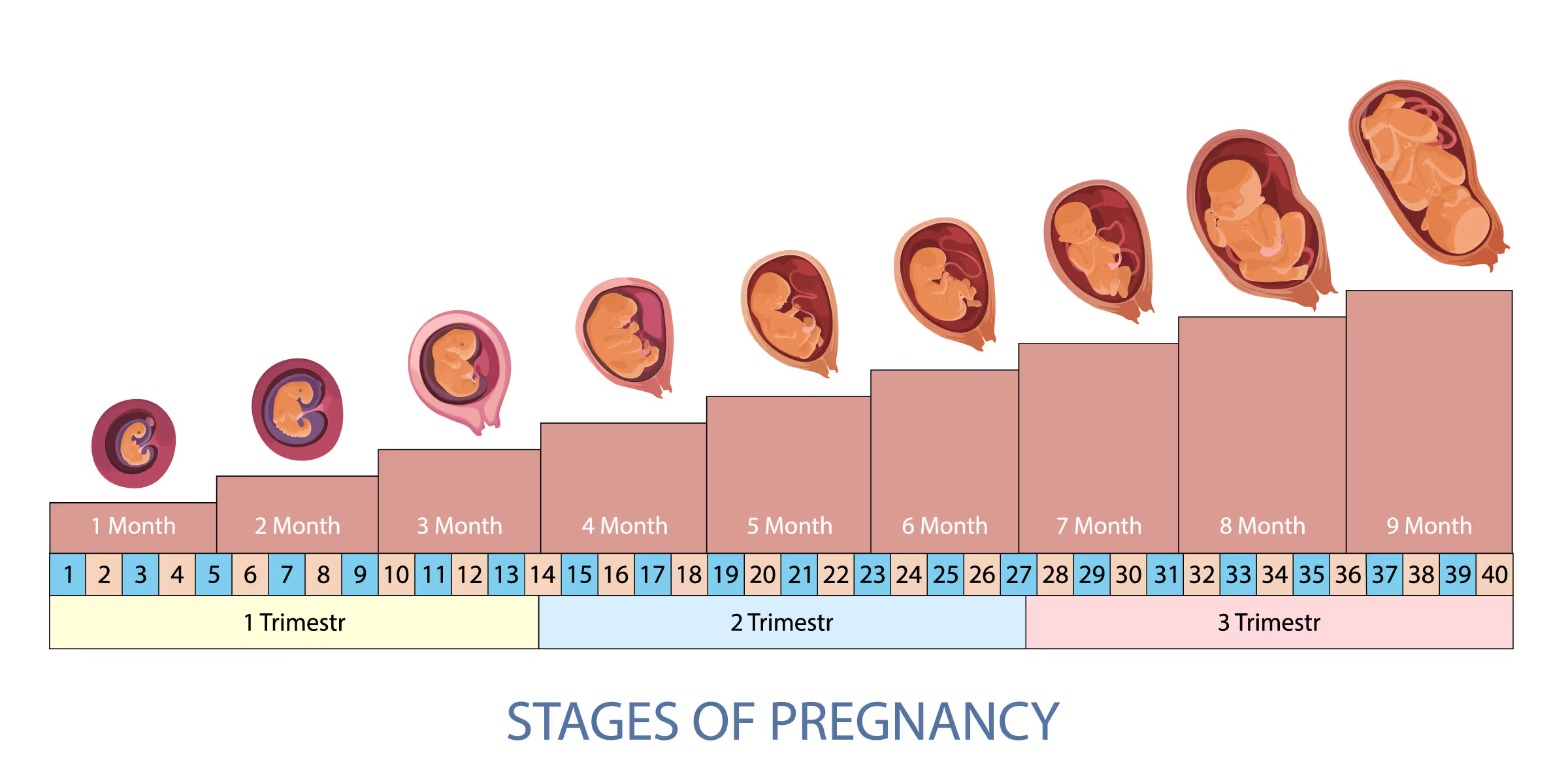Wondering when your baby will arrive? Use our free Pregnancy Due Date Calculator to get an accurate estimate of your due date based on your last menstrual period (LMP), ultrasound date, or IVF transfer date.
This tool is designed for expectant mothers, couples undergoing fertility treatments, and anyone looking to plan their prenatal journey with clarity and confidence. Trusted by families across Dubai and the UAE.
Ready to get started? Enter your details and see your estimated due date now.
A pregnancy due date calculator is an online tool designed to help expectant mothers estimate the day their baby will likely be born. This calculator uses information such as the first day of your last menstrual period (LMP) or the conception date to predict your estimated due date (EDD). While no calculator can provide an exact date, it provides a close estimate that helps guide your preparations and expectations throughout pregnancy.
Our calculator uses standard obstetric guidelines to estimate your due date. Choose from the following methods:
Your due date is only an estimate; most babies are born within 1-2 weeks of their expected delivery date.
Pregnancy is commonly divided into three trimesters, each lasting approximately three months. Below is an overview of developmental milestones throughout each phase.

By the end of the first trimester, the foetus measures approximately 2.5–3 inches, about the size of a plum.
This is often the most comfortable stage for expectant mothers. Symptoms like nausea typically subside, and foetal movement becomes noticeable.
By the end of the second trimester, the foetus is about 14 inches long—roughly the size of a cauliflower.
This is the final stretch, where the foetus prepares for life outside the womb.
By week 40, the average baby weighs between 3 to 4 kilograms and is about 50 cm long.
Your due date helps guide your entire pregnancy care plan. That’s why at Fakeeh University Hospital, we combine smart digital tools with customized maternity packages to support you at every stage.
Explore our best maternity packages designed to offer complete care from early pregnancy checkups to labor, delivery, and postnatal care.
The due date calculated is an estimate, and only about 4% of babies are born on their actual due date. Many factors can influence when your baby is likely to arrive:

Each pregnancy is unique. While development follows a general timeline, your obstetrician at Fakeeh University Hospital will guide you through every step—offering prenatal scans, routine checkups, and personalized support for you and your growing baby.
Your baby’s first milestone begins with knowing your due date.
At Fakeeh University Hospital, we provide exceptional prenatal care, ensuring the health and safety of both mother and baby. Our dedicated team of OB-GYN specialists, advanced diagnostic tools, and state-of-the-art birthing suites are here to support you from conception to delivery.
Book Appointment or call us +97144144444
The information provided in this blog, including the use of the pregnancy due date calculator, is intended for general informational purposes only and should not be considered medical advice. While every effort is made to ensure the accuracy of the content, the calculator provides an estimated due date based on standard pregnancy timelines, and individual factors may affect the actual delivery date. It is important to consult with a qualified healthcare provider for personalized medical advice, prenatal care, and any concerns regarding your pregnancy. Fakeeh University Hospital recommends regular checkups and consultations with your healthcare provider to monitor your pregnancy and ensure the health and safety of both mother and baby.